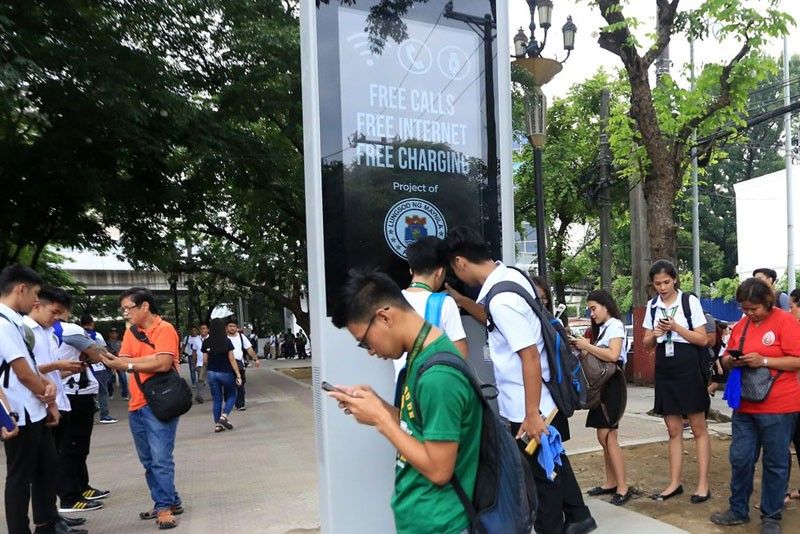Commentary: Integrating innovation, policy and infrastructure

Innovation has always been a buzzword thrown around in the industry.
Much like a placebo, the use of the word elicits a sense of optimism. For many, the surface level understanding of innovation includes a departure from an archaic disposition or a bygone era. The break from the past can be attributed to several observable factors ranging from all-encompassing paradigm shifts to minute relational changes between actors. But to concisely discuss innovation, breakthroughs should be talked about as the core of its movement where groundbreaking changes alter the course of the future reinforced by infrastructure as well as policy.
The Stratbase Group in partnership with the Office of the Secretary of the Department of Information and Communications Technology (DICT) recently hosted an ICT Innovation Summit with the theme: “Innovative Philippines: Transforming Barriers to Productivity, Transparency and Inclusive Growth”.
Government leaders, members of the academe and industry practitioners converged to exchange industry best practices including plans and roadmaps towards innovation integration in the country.
The event was attended by thought leaders representing the most innovative firms in the country such as Facebook, Microsoft, Voyager Innovations, Inc., State Grid Corporation of China (SGCC), International Container Terminals Services, Inc. (ICTSI), UnionBank, SGV & Co., National Association of Data Protection Officers of the Philippines (NADPOP) and De la Salle University. Representing the government were DICT Secretary Gregorio Honasan and National Privacy Commission (NPC) Chairman and Commissioner Raymund Liboro.
During the keynote speech of Secretary Honasan, he mentioned that central to the DICT’s plan is to break away from short political timelines and head towards a new policy direction that maximizes the benefits of available information, communications, and ICT solutions.
The highlight of his keynote address is the DICT’s mission to bridge access to millions of Filipinos by providing 104,000 access points all over the country, activating 111 nodes in identified growth areas, installation of more communication towers, and building 20 cable landing stations using submarine cables to bring in more connectivity. The vision of the DICT aims that in three years, there will be WiFi in 104,000 public sites.
Commissioner Liboro of the NPC tackled the importance of data privacy in a digital economy where the Philippines is one of the drivers of innovation in the region. He announced that the Philippines is currently angling to be part of the Asia Pacific Economic Cooperation's Cross Border Privacy Rules System.
By being part of the rules-based system, the Philippines is a step closer to safer digital governance. The need for this is due to emerging norms such as the importance of data as the world's most important resource and currency that propels economies and governments towards productivity, transparency, and inclusive growth. With better digital governance, the country will benefit from the improvement of government processes through safe and efficient data management systems and architectures. Commissioner Liboro emphasized the importance of the "Moralware” as part of our growth by doing it right.
Enabling policy
In both Secretary Honasan and Commissioner Liboro’s speeches, the importance of good policy is highlighted as one of the main proponents of innovation. This notion is also shared by industry leaders while discussing the culture of innovation in their industries and what the future holds for Filipinos in this exciting period of technological flux in the fields of blockchain, e-money, logistics, data privacy, taxation, cybersecurity, and energy.
Innovation breakthroughs cascade by the emergence of technological change but can only be realized with supportive policies as the bridge towards realizing the societal impact. An example of this is the policy bottlenecks that are often felt with disruptive technologies and new ways of creating value.
Changing the obsolete, myopic and unbalanced policies that limit the adoption of emerging technologies would need a drastic paradigm shift to a more strategic and competitive approach that embraces the use of ICT as an empowering tool for all sectors.
Broadband Infrastructure
Another common theme among the summit’s thought leaders was the need for better ICT infrastructure in our country. The call for faster and reliable connectivity was echoed by industry experts as a catalyst that will boost innovative ventures forward. The building of a national broadband infrastructure holds the key for inclusive access to cloud-based ICT solutions that would automate the frustratingly inefficient and un-transparent bureaucracy and public services of all government agencies.
Creation of value hinges on a robust broadband network that both innovation drivers and their users can affordably, if not freely, access for communication, e-commerce, information, and of course entertainment. Going online has become an automatic reflex for almost every conceivable need.
Legislators should strongly support Secretary Honasan’s appeal for adequate funding to implement the President’s marching orders to provide fast connectivity to all Filipinos and streamline the convoluted processes that bog down progress.
To make all these happen, the DICT has proposed a P36 Billion budget to light up the National Broadband Backbone and give free WiFi to millions of Filipinos in underserved and unserved areas. Imagine free WiFi in all government agencies, public schools and colleges, public hospitals and local government units.
This will also serve as the platform for the National government Portal which would enable seamless inter-government transactions and online services that will cater to citizens and businesses. This innovation will deliver on DICT’s objectives of enabling effective digitization and streamlining of processes, automation of front-line services, and ultimately providing people access to information,
Stratbase Group President and CEO Dindo Manhit in a fitting encapsulation of the summit’s message said, “Economies that have thriving tech industries have shifted to a more aggressive and incentivized approach realizing that with more innovation, the responsiveness of government to new opportunities spell the difference from being a laggard or being a leader.”
Ren de los Santos is research manager at think tank Stratbase Group, a partner of Philstar.com.
- Latest
























